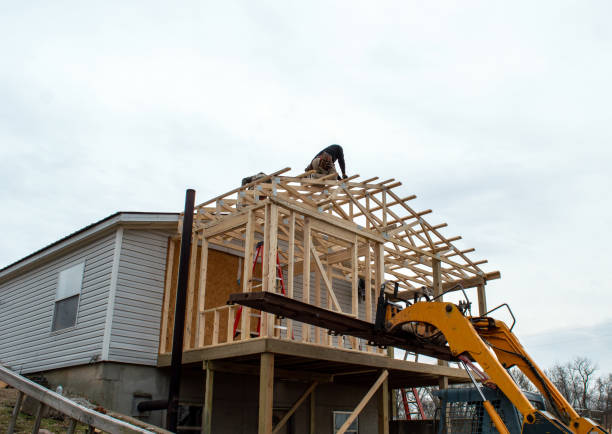Renovating a property can be exciting and rewarding. It’s a chance to update your living space, add value to your home, and make it fit your needs. But without proper planning, home renovations can quickly become stressful and costly. Many homeowners make the same mistakes over and over again. Avoiding these errors can save you time, money, and frustration.
Skipping the Planning Phase
Many people rush into renovations without a solid plan. They get excited about new floors or kitchen cabinets and start tearing things down. But without a clear plan, you might end up spending more than expected or running into delays. Start by outlining what you want to achieve. Make a list of priorities. Do you need more space, better lighting, or updated finishes? Next, set a realistic budget. Include a buffer for unexpected costs—usually around 10-20%. Planning might take time, but it pays off in the long run.
Underestimating the Budget
One of the most common renovation mistakes is underestimating costs. Home upgrades often involve hidden expenses like permits, labor, and materials. Prices can also go up due to delays or last-minute changes. Be honest about what you can afford. Get quotes from multiple sources and compare them. Don’t just go with the cheapest option—it could cost more later if the work is low quality. Always have a contingency fund in case something goes wrong.
Hiring the Wrong People
Choosing the right professionals is crucial to a successful renovation. Many homeowners hire based on price or a quick online search. This can lead to poor workmanship or even legal trouble if the contractor isn’t licensed or insured. Take your time when hiring help. Look for companies with solid reviews and references. Verify their license and insurance. Ask to see examples of past work. Searching for General Contractors near me can help you find local options, but don’t skip the vetting process.
Ignoring Permits and Local Codes
Skipping permits might save time, but it can cause major problems. Unpermitted work may not meet safety standards. If discovered, it might need to be redone or removed. This could also affect resale value. Check with your local city or county before starting any major renovation. Find out what permits are needed and how to apply for them. A good contractor can help guide you through this step. Following local codes protects both your property and your investment.
Changing the Plan Midway
Changing your mind once work has started is one of the fastest ways to go over budget. Whether it’s switching materials or adding new features, every change costs time and money. Stick to your original plan as much as possible. If you must make a change, talk to your contractor right away. Understand how it will affect the timeline and cost. Clear communication helps keep your project on track.
Overlooking Function for Style
It’s easy to get caught up in design trends. You might fall in love with a look you saw online, but it might not be practical for your home. Stylish choices that lack function can become annoying or need replacing later. Think about how your space will be used every day. Choose materials that are durable and easy to maintain. Make sure your layout supports your lifestyle. A renovation should make your home more comfortable, not just better looking.
Not Researching Local Services
Many homeowners fail to explore local renovation services before starting a project. Local companies understand regional building codes, weather concerns, and permit processes. This can make a big difference in how smoothly your project goes. If you’re planning a home update on the West Coast, look into Remodeling services in CA. You’ll likely find experienced professionals who know what’s needed for homes in your area.
Forgetting About the Future
When renovating, think beyond today. Trends come and go, but smart upgrades last. Poor planning can hurt your home’s resale value. Even if you’re not planning to sell soon, it’s wise to make choices that appeal to future buyers. Stick to timeless designs where possible. Invest in upgrades that improve energy efficiency or add functional space. Renovations should make your home better now—and in the future.
Conclusion
Renovating your property is a major investment. Mistakes can be expensive and stressful. But with careful planning and the right team, you can avoid the common pitfalls. Make sure you budget wisely, choose trusted professionals, and stay focused on both function and style. Your renovation doesn’t have to be perfect—but it should work for you and your home.









